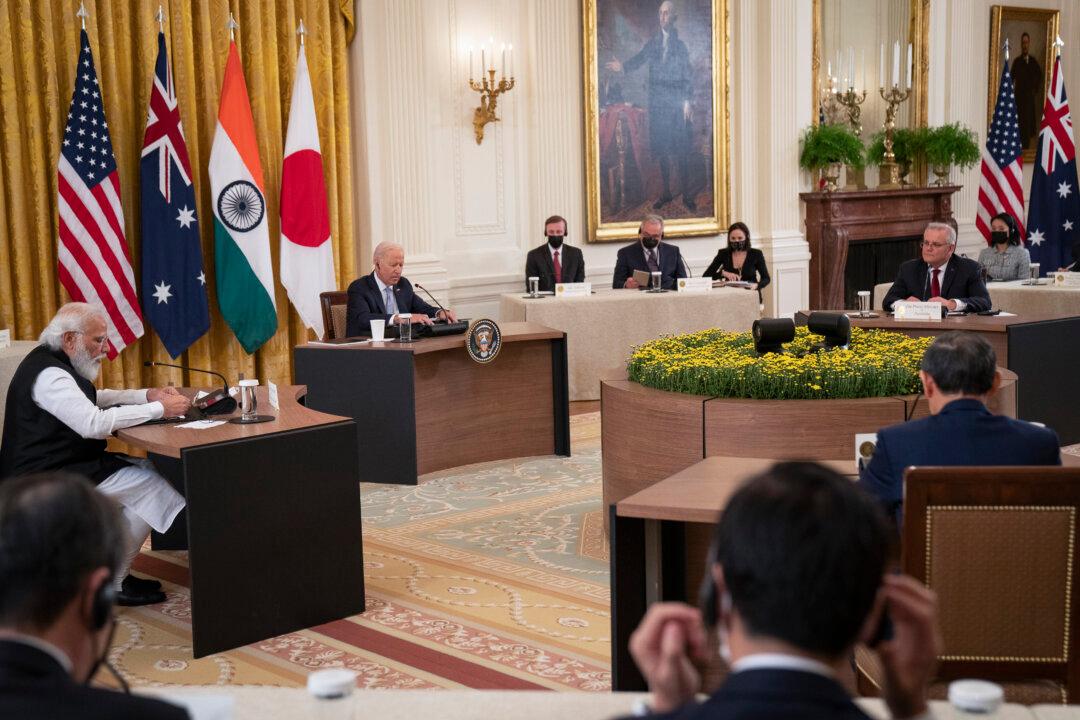President Joe Biden hosted the first-ever in-person summit of the leaders of the Quadrilateral Security Dialogue, colloquially known as the “Quad,” on Sept. 24, during which the group hailed its efforts to improve the rule of law in the Indo-Pacific amid rising assertiveness by the Chinese regime in the region.
Senior Biden administration officials on Thursday announced that the group would be creating new working groups to tackle issues related to space and global supply chains security, as well as coordinating on vital cybersecurity projects.




